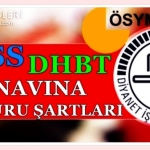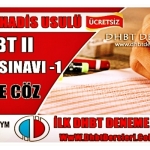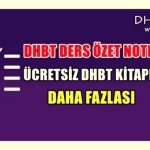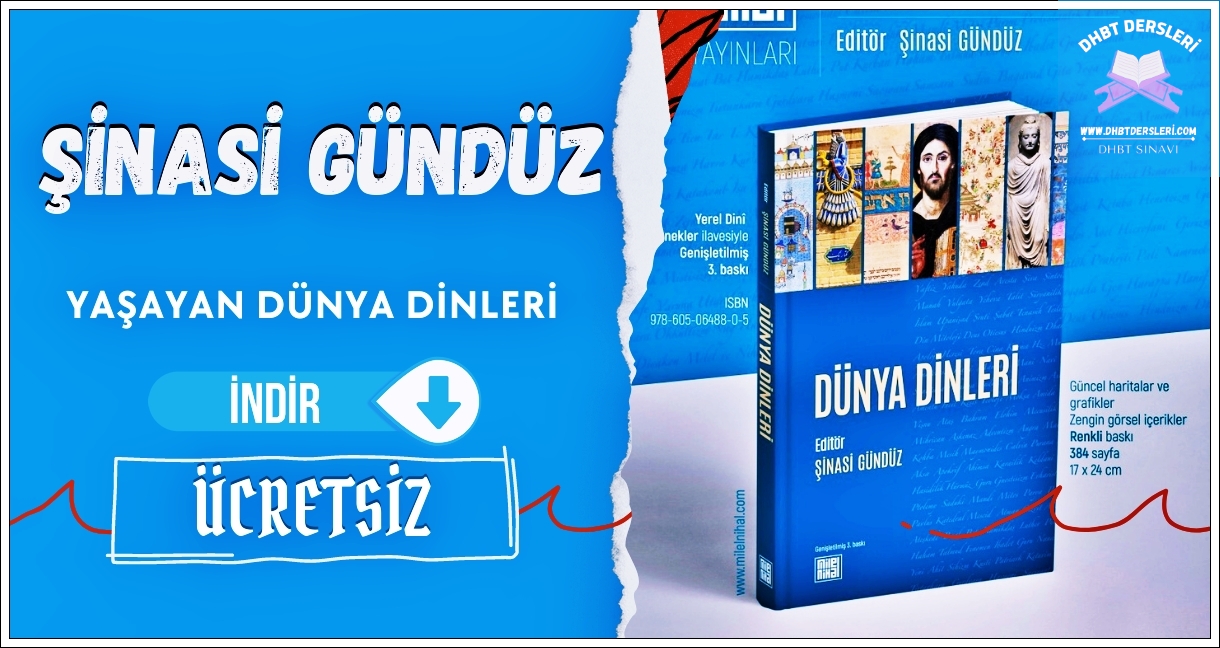What is the Qur’an?
The Arabic word “Qur’an” means a book, which is “always read,” “has boundless meanings,” and whose meaning is “unsurpassable by reading alone.”Thus, the Qur’an is a book, whose text was revealed once, but whose meanings are revealed endless times till the end of the world.
That is why one cannot say, “I finished reading the Qur’an” in the past tense, for the Qur’an’s meaning are not finished by reading its words on paper. The Qur’an is an eternal miracle. As is known, all of the prophets performed miracles, which were dominant in their respective times and locations.
The Qur’an’s distinction, however, is that it is a “living miracle,” which speaks to and about all times and spaces in the world and beyond. The most potent evidence for that is the existence of men and women in various corners of the world, who completely changed their lives for the better thanks to the Qur’an’s irresistible logic, eloquence, and meaning. Considering enormous efforts and dedications one must commit to changing their personality, shunning and abandoning bad habits, and altering their way of life in its core, the great miracle of the Qur’an manifests itself again.
The Qur’an is a book with one end in the heavens and the other on Earth. The Qur’an was actually revealed not as a text, but as an inspiration from Allah in the spoken word form, delivered by angel Gabriel, to the reasoning soul and mind of the Messenger of Allah.
The divine revelation, imprinted in Prophet Muhammad’s mind, was then inscribed on tree bark, paper pieces, and animal skin, and then delivered to the rest of humanity.
What kind of book is the Qur’an?
The revelation of the Qur’an to the reasoning soul of Muhammad the son of Abdullah, who was known in Mecca as the “The Trustworthy,” commenced in the year 610.
The first revelation took place in the Hira cave on a mountain near Mecca; the rest of the Qur’an was revealed over the next 23 years in the cities of Mecca and Medina until the death of Prophet Muhammad in 632. Allah informed the Prophet and his companions about the impending completion of the revelations by the following Qur’anic verse: “…Today have I perfected your religious law for you, and have bestowed upon you the full measure of My blessings, and willed that selfsurrender unto Me (i.e., Islam) shall be your religion” (Ma’idah 5:3).
The Qur’an consists of 114 chapters known as “surahs.” The topics and contents of these surahs vary depending mostly on events at the time of their revelation. Each verse in a surah is called an “âyah” (“sign”). As mentioned above, the Qur’an was not revealed as a holy script, but was delivered as spoken word.
Prophet Muhammad had then dictated the descending Qur’anic verses and they were inscribed on physical matters. The Qur’an was collected as one volume shortly after the death of Prophet Muhammad; it is called the “muskhaf.” There are about two billion Muslims in the world and they all read the same Qur’an.
Although there are various schools of jurisprudence among Muslims, the book they read and cherish is the same Qur’an.
The revelation of the Qur’an took place in two cities:
1.The Mecca period is the time Prophet Muhammad spent in Mecca since the commencement of revelations till the 13th year of his prophethood. This period is known as time when the Muslim minority was severely oppressed by the polytheist majority. The characteristic feature of surahs and âyahs revealed then is the priority of eloquence over meaning. (To be sure, this does not entail that the revelation was eloquent, but meaningless.) The Meccan âyahs are short and poetic in rendering, and mostly speak of morals and foundations of faith and morals.
2.The Medina period was 10 years, which started with Prophet Muhammad’s migration (hijrah) from Mecca and finished when he died. Unlike in Mecca, Muslims are the ruling majority in this period, wherein the revelation stresses meaning over eloquence. The Medina âyahs and surahs are long and elaborate, and mostly speak of worship and legal matters in Islam.
What are the contents of the Qur’an?
The main topics in the Qur’an could perhaps be classified in the following four broad fields:
1.Morals and behavior;
2.Creed;
3.Prayers and worship; and
4.Rules of individual and collective behavior.
Why does the Qur’an suddenly change topics?
As stated above, the Qur’an was revealed in portions over the last 23 years of Prophet Muhammad’s life in Mecca and Medina, responding to events therein. This fact indicates that the Qur’an is not an “untouchable book,” but it is a “book, touching upon life.” Furthermore, it is a book that speaks to and about events of life; hence, the “book of life.” Indeed, one could be bemused while reading the Qur’an for the first time, for this divine book has no usual “introduction-climaxconclusion” structure.
The Qur’an features no such structure, for it was not authored by a human for an isolated purpose. On the contrary, the divinely inspired script responded to Muslims’ day-to-day predicaments, joys, problems, and achievements in two different cities over a timespan of 23 years. The content of the Qur’an and daily life issues reflect each other.
Therefore, the Qur’an is just as orderly and complex as the life itself; as colorful as is life; as apparent and mysterious as life is. Finally, the Qur’an is as obvious and full of surprises as our worldly life is. Having read the Qur’an from the beginning to the end, one arrives at the following conclusion: the link between the revelation and life is the link between a praying person and Allah.
Is the Qur’an the literal word of Allah?
Muslims believe that the Qur’an contains the literal word of Allah the Almighty. Believing so is one of the conditions of the Islamic faith. The basis of this faith rests on its moral equivalent— trust. Muslims have sincere faith that Prophet Muhammad would not have said something was from Allah while it was not so. Muslims see proof for that in his sincere, honest and morally distinct life.
The source of an impressive and inspiring life he lived after receiving the revelation was the Qur’an. There is not even a hint of hypocrisy or lie in his entire life. Even his enemies acknowledged him as “Muhammad al-Amin” (“Muhammad the Trustworthy”). Prophet Muhammad was able to live as “al-amîn” not only thanks to his own virtues, but also because Allah would instantly reprimand him for or show him his mistakes via the Qur’anic revelation, in case such a situation arose. For example, Allah harshly criticizes Prophet Muhammad for frowning upon a blind person for interrupting him during a conversation with lords of Mecca, whose conversion to Islam would benefit the Muslim community and ease their hardships (`Abasa 80:3-4).
When the hypocrites of Medina secured Prophet Muhammad’s permission to abstain from joining a Muslim army, the divine revelation carried Allah’s rebuke: “May Allah pardon thee [O Prophet]! Why didst thou grant them permission [to stay at home] ere it had become obvious to thee as to who was speaking the truth, and [ere] thou camest to know [who were] the liars?” (Tawbah 9:43).
Prophet Muhammad is rebuked for hesitating to rule in favor of a Jew in his claims against a Muslim when the former was right and the latter was wrong (Nisa’ 4:105-107).
He was also warned for praying funeral prayers of hypocrites (Tawbah 9:84). Also, there were two instances when what he wanted to remain concealed was unveiled by the revelation (‘Ahzab 33:37; Tahrim 66:1).
There is another proof that the Qur’an originates from the divine source: the Qur’an does not touch upon very important people, events, and aspects of Prophet Muhammad’s life. For instance, while there is an entire surah named after and dedicated to Mary, mother of Jesus, Prophet Muhammad’s mother is not mentioned even in one âyah. Despite the fact Prophet Muhammad had a profound impact on humans’ history, the Qur’an does not mention the deaths of such people as his wife Khadija, his uncle and protector Abu Talib, and his son Abraham and other children, who were obviously very dear to his heart. There are many more examples of this kind. Yet another proof that the Qur’an descended from the Lord of the seen and unseen is that intricacies and details of the world and the universe, which Prophet Muhammad could not have possibly been knowledgeable of, are written in the Qur’an. For example, the constant expansion of the universe (Dhariyat 51:47); the sky and Earth were contiguous and separated afterwards, and everything is created from water (‘Anbya’ 21:30); Earth is shaped like an egg (Shams 91:6); winds pollinate plants (Hijr 15:22); and cloud systems bring about rains (‘Ibrahim 14:20).
Further, the Qur’an details the lives of prophets of the past and predicts the imminent defeat of the Roman Empire at the hands of the Persian Sassanid Empire (Rum 30:2-5).
Yet another proof that the Qur’an originates from the divine source of previous heavenly scripts is that a handful of people, educated by the Qur’an, were able to fulfill one of most significant surges of faith in human history. The revelation of the Qur’an is the driving force behind Islam’s existence and its winning of hearts and minds of people throughout centuries.
From this perspective, one of the most astounding proofs until the end of the world that the Qur’an is a divine revelation is its unprecedented impact on humans. The Qur’an’s impact on its interlocutor is proportional to the latter’s belief and faith: the stronger one’s faith in the Qur’an, the more impact the Qur’an has on his life.
What steps are taken to safeguard the Qur’an from alteration?
The following precautions were undertaken to preserve and safeguard the text of the Qur’an:
1.Preserving the revelation in written form: The very first instance of revelation reads that Allah is “He who has taught [man] the use of the pen” (`Alaq 96:4-5), which is a subtle indication that the revelation was to be preserved by the use of a pen. Another indication to that effect is also seen in “Noon. [Consider] the pen, and all that they write [therewith]!” (Qalam 68:1), which is among the earliest instances of revelation.
As is known, the Arab culture of the day was mostly based on oral traditions and almost no written documents were used. Having received the abovementioned instructions, Prophet Muhammad instituted a new tradition of written preservation of documents in Mecca. To preserve the divine revelation in the written form, 42 scribers were engaged in the process over 23 years. From this perspective, Prophet Muhammad was the first person to compile the entire revelation in one volume. On the day of his passing, the entire revelation was compiled into and readily available as one volume.
2.Preserving the revelation in salâh (daily prayers): The very first instance of revelation speaks of salâh (`Alaq 96:10). This fact also indicates that the Qur’an played an equal role with prayers in early Muslims’ lives. Salâh is like a vessel containing the Qur’an. While it is permissible, indeed commanded, to read the Qur’an outside salâh, Prophet Muhammad said no salâh can be performed without reciting the Qur’an: “No prayer [is complete] without the Qur’an [i.e. Surah Al-Fatihah ]” (narrated by al-Bukhâri). Salâh is obligatory upon every faithful. Thus, the Qur’an is preserved in Muslims’ prayers. After all, a great number of companions learned the Qur’an by heart by listening to Prophet Muhammad during congregational prayers. Another aspect of the preservation of the Qur’an in salâh is the joint Friday prayer, which was instituted in Medina. Prophet Muhammad delivered around 500 sermons in Medina. The majority of these sermons were about the Qur’an, where he would often recite Qur’anic passages. This is another aspect of the preservation of the Qur’an.
3.Preserving the revelation in human memories: The early Muslims would inscribe the revelation on whatever they were able to do so, and then memorize it. Sixteen companions have compiled their own muskhafs while Prophet Muhammad was alive. While the content of these copies and the content of today’s muskhaf are identical, there are differences in the ordering of surahs, because every scriber used their own methods. Prophet Muhammad’s contemporaries and companions memorized the Qur’an from cover to cover, which is known as “hifdh,” while the person who accomplishes hifdh is called a “hâfidh.” As history unfolded since the Qur’an’s revelation, numbers of hâfidhs grew exponentially, thus enabling the passage of this divine book to following generations in its living memory form over the last 1,400 years. Undoubtedly, the number of hâfidhs among Muslims of today certainly exceeds hundreds of millions. Throughout the Middle Ages and to date, no other community has read so much and so often as the Muslims have their holy book, whose first instance of revelation commenced with the command of “Read!”
How was the Qur’an transmitted to the later generations?
Ali ibn Abu Talib, the Prophet’s cousin and one of his closest companions, has secluded himself from the world for six months following the death of Prophet Muhammad. In this period, he compiled a copy of the entire Qur’an from the scrolls inscribed with fragments of the divine revelation.
During Caliph Abu Bakr’s ruling, the scattered volume dictated by Prophet Muhammad personally was compiled into a book—a muskhaf—from documented sources and memories of contemporary Muslims with each verse verified by at least two witnesses as to the authenticity and its location in the book.
A committee under Zayd ibn Thabit’s chairmanship compiled the Qur’an we have today with its present ordering of surahs and âyahs during Caliph Uthman ibn Affan’s term. Caliph Uthman then made at least four copies of this book and sent them to various political and religious centers of the Islamic world.
Thus, there are several copies of the Qur’an, highly probably issued in the first hijri century, in different parts of the world today.
There is a copy in Yemen; two copies in Istanbul, Turkey; one copy in Cairo, Egypt; an incomplete Tashkent copy in Saint Petersburg, Russia; and, an incomplete copy in London, the UK. These copies are identical to the millions of officially released copies of the muskhaf we read daily, save minor orthographic variances.
These difference stem from the fact that the Arabic script does not have vowels; instead, a system of lines and signs above and below consonants was later introduced, which allow for slightly differing reading. The invented system of vowel sounds leads to minor differences, but absolutely does not alter the Qur’anic verses’ meanings.
Is there an order in the current location of surahs and âyahs?
There are two types of order: The order of 1) âyahs and 2) surahs. Prophet Muhammad directly instructed the current location of âyahs. As the Qur’anic passages were revealed, Prophet Muhammad instructed his scriptwriters to write them in their appropriate locations. Furthermore, he used to read these passages in his daily obligatory and voluntary prayers and in the Friday prayer sermons; his companions would thus learn âyahs in their proper order. The ordering of surahs is classified into two types:
1.The official ordering: The current ordering and location of surahs in the muskhafs was instituted by a committee of companions in the times of Caliph Uthman ibn Affan.
2.The revelation order: The chronological order of revelation of the Qur’anic chapters. Several companions maintained private compilations of surah and âyah revelations, which differ from each other.
What is the status of reason and mind in Islam?
The Qur’an is a book that requires its readers to reason and employ their minds, which is explicitly stated multiple times throughout its text. There is no other holy script that would encourage reasoning as much as the Qur’an does. The Qur’an does not use the word “reason” (al-‘aql) in its noun form, but uses it as a verb, i.e. “to reason” (ta’aqqul). This fact entails three outcomes:
1.Reasoning is considered existent when it is active and vice versa;
2.The Qur’an attributes a great value to active, actual and dynamic reasoning;
3.The Qur’an does not grant ontological independence to reason and does not make it absolute.
The Qur’an mentions “knowledge” (al-‘ilm) in 850 instances. Knowledge is certainly linked with reasoning; therefore, any mention of knowledge in the Qur’an, by extension, is a reference to reasoning.
Are there verses about reasoning in the Qur’an?
The Qur’anic approach to humans’ reason is perhaps best examined in light of the following âyahs: “It is He who lays the loathsome evil [of disbelief] upon those who will not use their reason.” (Yunus 10:100)
“Verily, the vilest of all creatures in the sight of Allah are those deaf, those dumb ones who do not use their reason.” (‘Anfal 8:22)
“And most certainly did We overwhelm Pharaoh’s people with drought and scarcity of fruits, so that they might take it to heart.” (A`raf 7:130)
“And most certainly have We destined for hell many of the invisible beings and men who have hearts with which they fail to grasp the truth, and eyes with which they fail to see, and ears with which they fail to hear. They are like cattle – nay, they are even less conscious of the right way: it is they, they who are the [truly] heedless!” (A`raf 7:179)
“And there are on earth [many] tracts of land close by one another [and yet widely differing from one another]; and [there are on it] vineyards, and fields of grain, and date-palms growing in clusters from one root or standing alone, [all] watered with the same water: and yet, some of them have We favored above others by way of the food [which they provide for man and beast]. Verily, in all this there are messages indeed for people who use their reason!” (Ra`d 13:4)
“And He it is who grants life and deals death; and to Him is due the alternation of night and day. Will you not, then, use your reason?” (Mu’minun 23:80)
“Thus clearly do We spell out these messages unto people who use their reason.” (Rum 30:28)
“Did We not grant you a life long enough so that whoever was willing to take thought could bethink himself? And [withal,] a warner had come unto you! Taste, then, [the fruit of your evil deeds]: for evildoers shall have none to succor them!” (Fatir 35:37)
What is the connection between reason and Divine revelations?
The following âyah interchangeably uses “reasoning” and “listening” to the revelations while conveying words of the Hellfire dwellers: “Had we but listened [to revelations], or [at least] used our own reason, we would not [now] be among those who are destined for the blazing flame!” (Mulk 67:10).
This âyah shows that uncorrupted revelation and reasoning can equally lead one to the truth. Just like the Qur’an calls Earth, the sky, the sun, the moon, and day and night âyahs (“signs”), so are called the basic units (sentences) in its chapters. “[All this have We expounded in this] blessed divine writ, which We have revealed unto thee, [O Muhammad,] so that men may ponder over its messages, and that those who are endowed with insight may take them to heart.” (Sad 38:29)
“But when they are told, ‘Follow what Allah has bestowed from on high,’ some answer, ‘Nay, we shall follow [only] that which we found our forefathers believing in and doing.’ Why, even if their forefathers did not use their reason at all, and were devoid of all guidance?” (Baqarah 2:170)
“Those who believe, and whose hearts find their rest in the remembrance of Allah – for, verily, in the remembrance of Allah [men’s] hearts do find their rest.” (Ra`d 13:28)
What is the Islamic point of view of the Old Testament and the New Testament?
The Qur’an asserts that, like the Qur’an itself, both the Old Testament and the New Testament originate from the same divine source. But the Qur’an also maintains that clergies altered both previous scripts and interpreted them in an erroneous manner, thus leading to the loss of their original contents and meanings.
Does the Qur’an speak about Jews and Christians; if so, what is said about them?
The Qur’an speaks about Jews and Christians in a number of instances. The Qur’an distinguishes between those Jews and Christians to be praised and to be chastised. See the following âyahs: “[But] they are not all alike: among the followers of earlier revelation there are upright people, who recite Allah’s messages throughout the night, and prostrate themselves [before Him]. They believe in Allah and the Last Day, and enjoin the doing of what is right and forbid the doing of what is wrong, and vie with one another in doing good works: and these are among the righteous. And whatever good they do, they shall never be denied the reward thereof: for, Allah has full knowledge of those who are conscious of Him. [But,] behold, as for those who are bent on denying the truth – neither their worldly possessions nor their children will in the least avail them against Allah: and it is they who are destined for the fire, therein to abide.” (‘Ali `Imran 3:113-116)
“And among the followers of earlier revelation there is many a one who, if thou entrust him with a treasure, will [faithfully] restore it to thee; and there is among them many a one who, if thou entrust him with a tiny gold coin, will not restore it to thee unless thou keep standing over him.” (‘Ali `Imran 3:75)

































